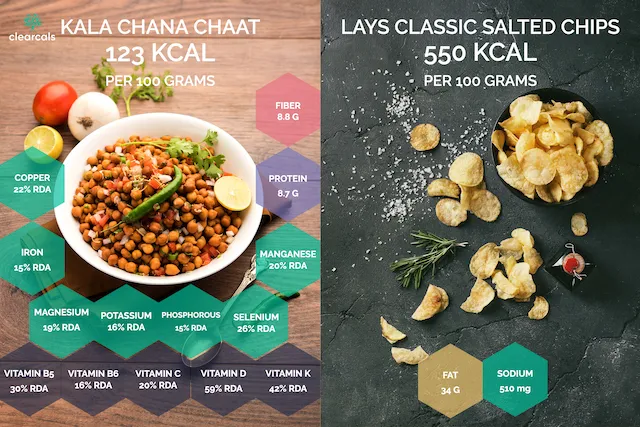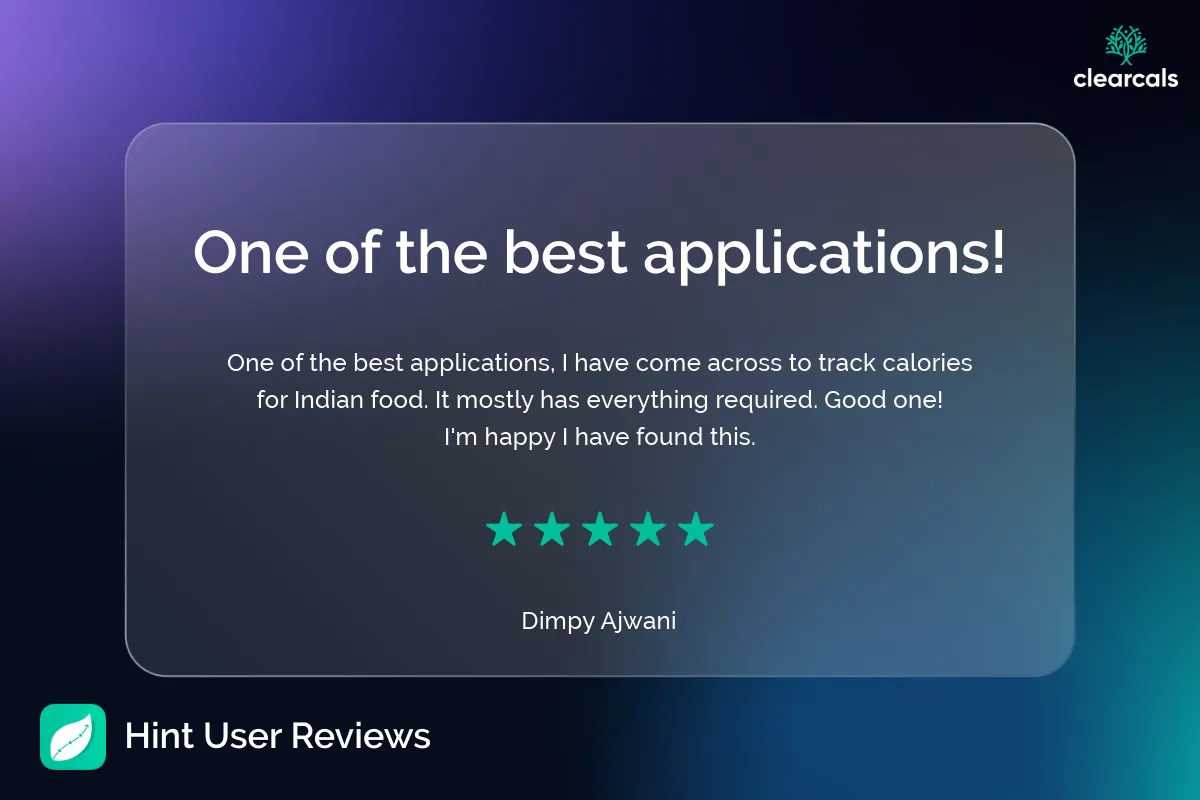Looking for a Personalized Diet Plan?
Weight Loss Tip #1: Count Your Calories

By Asfia Fatima, Chief Dietitian at Clearcals
Counting calories is one of the most fundamental and effective steps toward achieving weight loss.
A calorie is a unit of energy (usually represented as kcal or Cal), and understanding how many calories your body needs is the first step in managing your weight.
Your daily calorie requirement depends on factors such as your age, height, weight, gender, and activity level.
For example, a 36-year-old man with a height of 175 cm, a weight of 72 kg, and no regular physical activity requires around 2,000 kcal per day to maintain his current weight (calculated using the Hint app).
If he consistently consumes more than 2,000 kcal a day, he will gradually gain weight.
On the other hand, if he reduces his calorie intake, he can lose weight by creating a calorie deficit—consuming fewer calories than his body needs.
How to Create a Calorie Deficit
The key to weight loss is simple: eat fewer calories than your body burns.
To safely lose weight, it’s recommended to reduce your daily calorie intake by 10-20%. For someone who needs 2,000 kcal per day, this means consuming between 1,600 to 1,800 kcal daily.
Using a calorie tracker like the Hint app can help you maintain this deficit by logging your food intake and calculating the calories you consume throughout the day.
Studies have shown that people who use calorie-tracking apps consistently experience significant weight loss. Over time, if you maintain a controlled calorie intake, you’ll likely see gradual, sustainable results.1

Nutrient-Dense vs. Calorie-Dense Foods
It’s not just about cutting calories; the quality of the calories matters too. Choosing nutrient-dense foods that provide essential vitamins and minerals is key to maintaining health while losing weight.
For example, a 100-gram serving of kala chana chat contains only 123 kcal, while the same weight of potato chips packs 550 kcal.
Not only does kala chana chat have fewer calories, but it’s also rich in protein, fiber, and a range of vitamins and minerals like potassium, vitamin C, and magnesium. In contrast, potato chips are calorie-dense, high in unhealthy fats, and low in nutrients.
The takeaway? Always opt for nutrient-dense foods with low-calorie density so you can eat satisfying portions without consuming too many calories.
Balancing Macronutrients
Another important aspect of managing your calories is understanding the macronutrients—carbohydrates, proteins, and fats. Each macronutrient provides a different amount of energy:
- 1 gram of carbohydrates provides 4 kcal
- 1 gram of protein provides 4 kcal
- 1 gram of fat provides 9 kcal
While counting calories, ensure your diet is balanced in macronutrients. A well-rounded diet will support not only weight loss but also overall health.
You can learn more about macronutrient balance in the Hint app, which helps you track your intake of carbs, protein, and fat, ensuring you meet your nutritional needs while staying within your calorie limits.

Final Thoughts
As you begin your calorie-counting journey, remember not to lower your daily calorie intake by more than 20%. A steep reduction can lead to micronutrient deficiencies and harm your health. Instead, make gradual adjustments and focus on eating nutrient-rich, balanced meals.
The Hint app is a powerful tool to help you monitor your calories, macronutrients, and overall progress.
Whether you’re using the free version or subscribing to Hint Pro or Hint Premium, you’ll get access to personalized Indian diet plans that are tailored to your goals, making calorie counting and balanced eating easier than ever.
References
About the Author
Asfia Fatima is the Chief Dietitian at Clearcals, with a Master’s Degree in Dietetics and Clinical Nutrition and over a decade of experience in clinical nutrition and lifestyle management.
She specializes in evidence-based diet planning for weight loss, diabetes, and metabolic health.
At Clearcals, she leads the nutrition strategy behind the Hint app, helping users achieve their goals with science-backed guidance.
🔗 Connect with Asfia on LinkedIn






